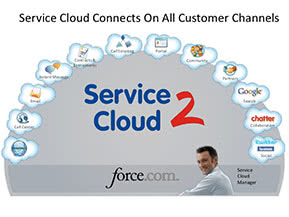What's The Appeal of Microsoft Dynamics CRM 4?
Microsoft products have found a home in the majority of offices, but mostly in the form of personal productivity suites, like the ever-popular Office. Still, those familiar with, or looking for, CRM and ERP solutions have probably heard of Microsoft’s Dynamics platforms.
There will perhaps always be Microsoft naysayers, but there is little denying that their products must have some merits, given their popularity. Microsoft Dynamics CRM has been extremely popular, and Microsoft released a hosted version of Dynamics CRM 4 in 2008, thereby entering an arena with the likes of Salesforce.com and SugarCRM.
In Microsoft Dynamics CRM 4 Integration Unleased, authors Marc J. Wolenik and Rajya Vardham Bhaiya take a look at best practices, techniques, and sample code for using Dynamics CRM 4 to its greatest extent. Bhaiya and Wolenik recently sat down with InformIT.com, and answered some questions about what exactly, is the appeal of the titular platform.
Wolenik and Bhaiya do justice by the product—they don’t mention any faults, but they do make note of some features companies may be unaware Dynamics CRM 4 has. One thing the two do mention—something anyone discussing the merits of Microsoft productivity software seems to mention—is that it’s built on .NET technology and can be easily extended. Microsoft software is largely supported by existing infrastructure, making it an obvious choice at times.
For those who don’t think the choice is obvious, the authors give some notes to businesses considering Salesforce.com, or another CRM platform. (Unfortunately, the question was posed as “Microsoft vs. established CRM vendors,” so much of the answer aims to prove that Dynamics CRM is established. Wolenik notes that Dynamics CRM goes beyond just “customer” relationship management, and works to consolidate many line-of-business apps onto one platform. Meanwhile, Bhaiya points out that Dynamics CRM allows custom configuration for all of its packages, not just the premium ones (which is the practice Salesforce.com maintains).
The two also argue that Dynamics CRM 4’s integrative capabilities with SharePoint and Outlook cannot be matched, and Microsoft offers a flexible licensing structure for those companies that can, and want to, support an on-premise deployment.
For most companies in search of CRM, though, Microsoft’s big win will perhaps always be the comfort level it offers. Familiar UIs are always nice, and it’s also good to see that Microsoft hasn’t completely turtled in offering other features because of it. We’re curious to see what they come up with in 2010—and if they get even more aggressive with SaaS CRM providers like Salesforce.
[Photo courtesy of janetchristian.]





